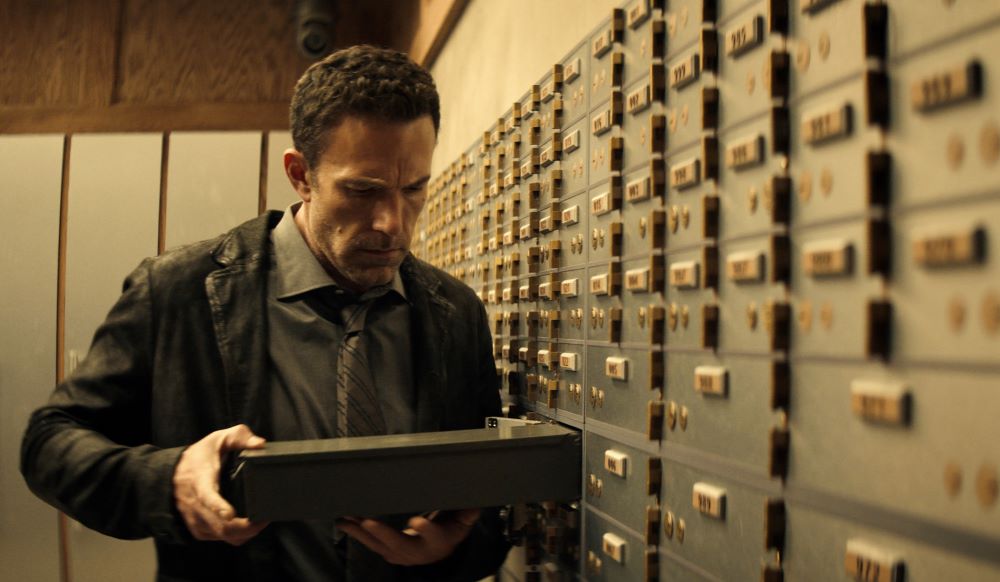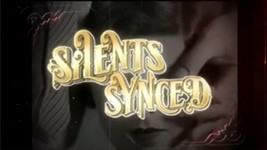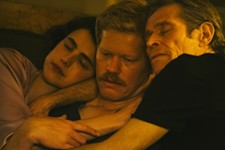The Family That Films Together: Robert, Racer, and Rebel Rodriguez on Hypnotic
The moviemaking dynasty proves the value of working from home
By Richard Whittaker, 10:37AM, Sat. May 13, 2023

Robert Rodriguez made his reputation as an enfant terrible of '90s indie cinema. But as he sits on the sound stage at Troublemaker, the studio he built in East Austin, with two of his filmmaker sons, it's clear that he's now the pater familias of Austin moviemaking.
His newest film, Hypnotic, is truly a family affair. Not only did Robert write and direct, but Racer produced (his second feature credit after 2020's Netflix smash, We Can Be Heroes), while Rebel's back as composer after Heroes and Robert's 2018 secret project, Red 11. “There was no transition from drawing on the floor of the living room, “ Rebel said, “to drawing concept art for Shark Boy and Lava Girl and coming up with ideas in the pool. We were still just swimming and drawing.”
“Except now they were getting paid for it,” beamed the proud father.
For Robert, not having family around while he’s working would be weird. “I’ve always worked out of the house since Desperado. There was no separation between work and play and family life. I did that so that I could always be having fun with my family. I didn’t want to go to work. Who wants to go to work when there’s these fun kids around?”
Hypnotic's been gestating since 2002, when Robert came up with the idea for a Hitchcock-inspired thriller while he was editing Spy Kids 2: Island of Lost Dreams (far from coincidentally, the first on-screen appearances for Race, Rebel, and sibling Rocket as extras). However, Robert called the first draft "a skeletal 30-page 'scriptment.' I didn't really come up with the last couple of twists until 2016, 2017. ... It needed more experience and time, and then their collaboration to finish it."
"I was five years old when he first started writing this script," said Racer. "I definitely didn't expect that I'd go from hearing whispers of it when I was growing up to one day it's in my hand as a script. 'Hey, help me fill in some notes for this so we can figure this out to shoot.' And then five years after that we actually make it happen."
Robert called Racer "my uncredited cowriter, because every day we've have to be on set changing the script because things changed with COVID, we'd have to change set, we'd have to consolidate scenes, we didn't have time for reshoots later. ... We have to make the scene work now."
The other side of working from home is that Hypnotic, like just about every project Robert ever made, was filmed in Austin. Keen-eyed Austinites will recognize locations: more than that, anyone watching the movie at the Blue Starlite Mini Urban Drive-In rooftop Downtown location will be on set. That's what happens when every day is location scouting day. Robert explained: “We’re always walking around after dinner going, ‘This would be a neat place to shoot.’” And even though he has “shot the heck out of this place already, it’s changed so much. It’s like a whole new city. I can film for another 20 years!
“We’re doing Spy Kids: Armageddon now. Look at all these spy-fi buildings. People are going to think we did this with CG, and somebody just made this thing. We can point a camera at it and it’s ours.”
Austin Chronicle: COVID almost derailed production of Hypnotic multiple times. Was there ever a moment that you thought, “This isn’t going to happen”?
Racer Rodriguez: It felt like almost every day we were feeling that.
Robert Rodriguez: It felt like it was very optimistic. It felt like this movie was gonna happen because I had it for so long, finally written a script, and finally been attached. We never let go, even during all the COVID shutdowns. We just didn’t know when.
It started to be in Austin, and that it had to move to Santa Clarita, then it was going to move to Canada, then it moved back here, and I thought, "I can get this done." Because I had just finished doing [The Book of Boba Fett], and this was different from Star Wars, because we can't just afford to do COVID protocols – insurance companies get very dicey and they charge too much, but they were willing to do it for the time period we had. And we had a very short time period. It went from a 55-day shooting schedule to a 34-day schedule. Which with 10-hour days and multiple moves, sometimes is a 6-hour day. So we really shot in 24 days, which is fast and furious. It's one of the shortest schedules I've ever had.
Thank God I had Ben [Affleck]. "Hey, it's gonna be like the roaring '90s, shooting fast and loose," and he was totally into it. "Yeah, I've been standing around on set so much, I didn't think anyone shot like this anymore." Well, we have to for this one.
AC: Big difference is that you've got 30 years on you now.
Robert: (laughs) Something happens when you're shooting or writing score. You become superhuman for that time period. I was shooting all day, editing at night, showing scenes to the actors the next day to get them juiced up for the next day's work. You can't keep that up. But because you know it's just for the shoot you can do it for then, and then you just drop. And because it's only 34 days, you go, "I can take the brutality. It's not that bad."
AC: You talked about how this was just an extension of your childhood, but was there a moment when you went, “Oh, I do this for a living now”?
We did our low-budget, $7,000 project Red 11 together, and gosh, you and I were the only crew, he did the whole score, and even then it’s still just figuring stuff out, laughing on set, and coming up with ideas on the fly. Then you see it onscreen and people are laughing, and you go, “Oh, I do this now.”
Robert: Then we went to Cannes with Red II in the Directors’ Fortnight, and I’m going, “You guys are getting the Mariachi experience.” You don’t realize that you’re making something that people are going to see. You’re just having fun.
Rebel Rodriguez: It dawns on us every single time. We’re contributing to something that so many people are contributing to.
AC: Red 11 was the $7,000 movie that’s almost the industry in-joke about how little you can make a movie for, whereas Hypnotic is the $30 million movie, which is now regarded as this weird midpoint but also this sweet spot, the mid-budget movie that a lot of people want to get back into but don’t quite know how.
Racer: I think we thrive in that environment.
Robert: Yeah, I like that environment where you have enough to make it, and if you know how to do trick photography then you can make it feel like it’s much bigger. And that’s the trick. It’s kind of like a super-sized movie, like Hitchcock did with Psycho. He went, “I’m going to take my TV crew, and I’m going to shoot a feature with them. I’ll keep the mindset that it’s a feature, but I’m going to keep the process of a TV movie. We shoot it fast, so we don’t spend so much, yet they get a big movie.”
That’s the sweet spot of where I made all those movies. Spy Kids, Sin City, all those were in the same budget range. They just feel like different movies because of the approach to the filmmaking, but the process was the same. Wrangle my crew, shoot it locally, do multiple jobs myself, and have it be about an idea. More than just throwing money and visual effects at it – have the idea be bigger than your budget.
AC: And this feels like a big-budget score.
Rebel: Yeah, Red 11 was entirely synth-based. It was like John Carpenter, all pulses. We Can Be Heroes was this epic superhero score, all orchestral. And this one, it was going to be a hybrid. I wanted to bring what I learned from the first one and from the second and bring it into this. It was a lot of learning.
Robert: They’re the same age I was when I was doing Mariachi and Desperado, so it’s like, wow, they have lots of ideas. It’s like taking a time machine back and getting to visit my younger self. “How would you figure this out?” He would have figured it out in two seconds, and that’s how these guys are, and each project they do it’s like how each project I worked on. Throwing yourself in the deep end, you learn fast. ... You’ve got to set the bridge on fire and see how fast you can get across.
Rebel: You’ve got to put yourself in that Rocky moment. The stakes are way too high, but the passion is equally high.
Hypnotic is in cinemas now. Read our review here.
The film’s set designers will be attending a special screening at the Blue Starlite Mini Urban Drive-In Downtown, 300 San Antonio on Sat., May 20, 8:40pm. Tickets and info at bluestarlitedrivein.com.
A note to readers: Bold and uncensored, The Austin Chronicle has been Austin’s independent news source for over 40 years, expressing the community’s political and environmental concerns and supporting its active cultural scene. Now more than ever, we need your support to continue supplying Austin with independent, free press. If real news is important to you, please consider making a donation of $5, $10 or whatever you can afford, to help keep our journalism on stands.
June 27, 2024
June 28, 2024
Hypnotic, Robert Rodriguez, Racer Rodriguez, Rebel Rodriguez, Austin Filmmakers








